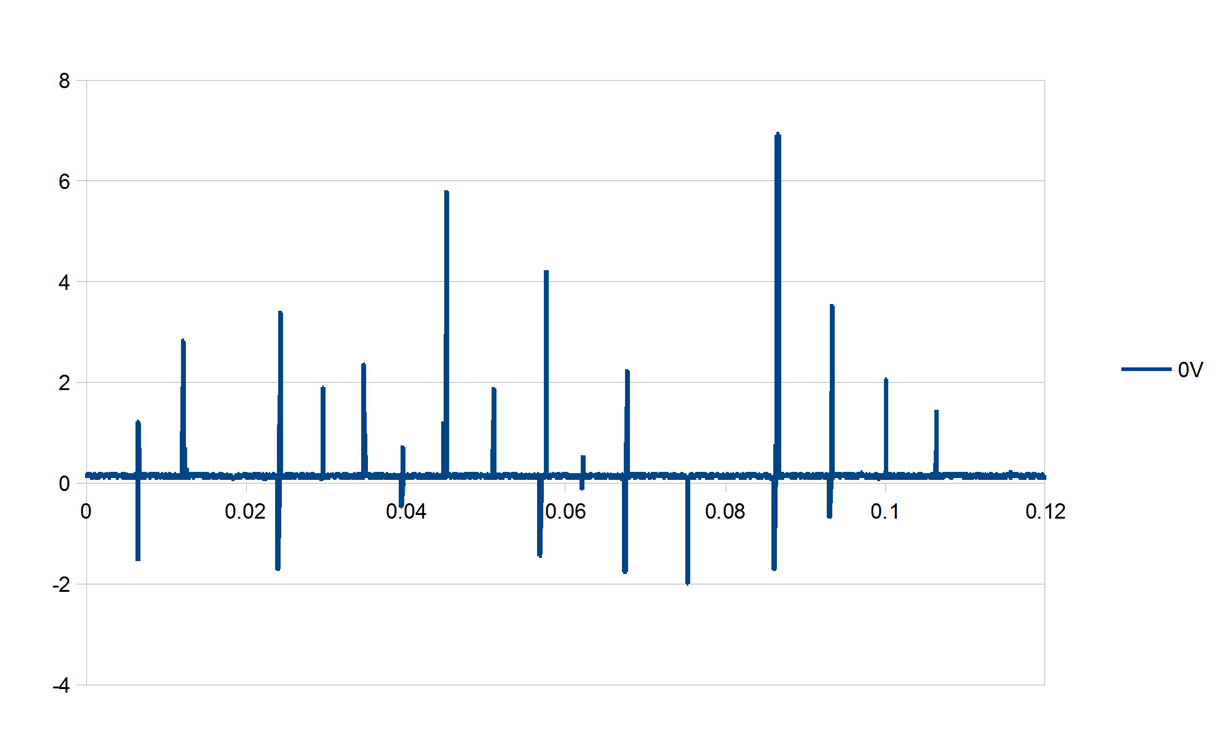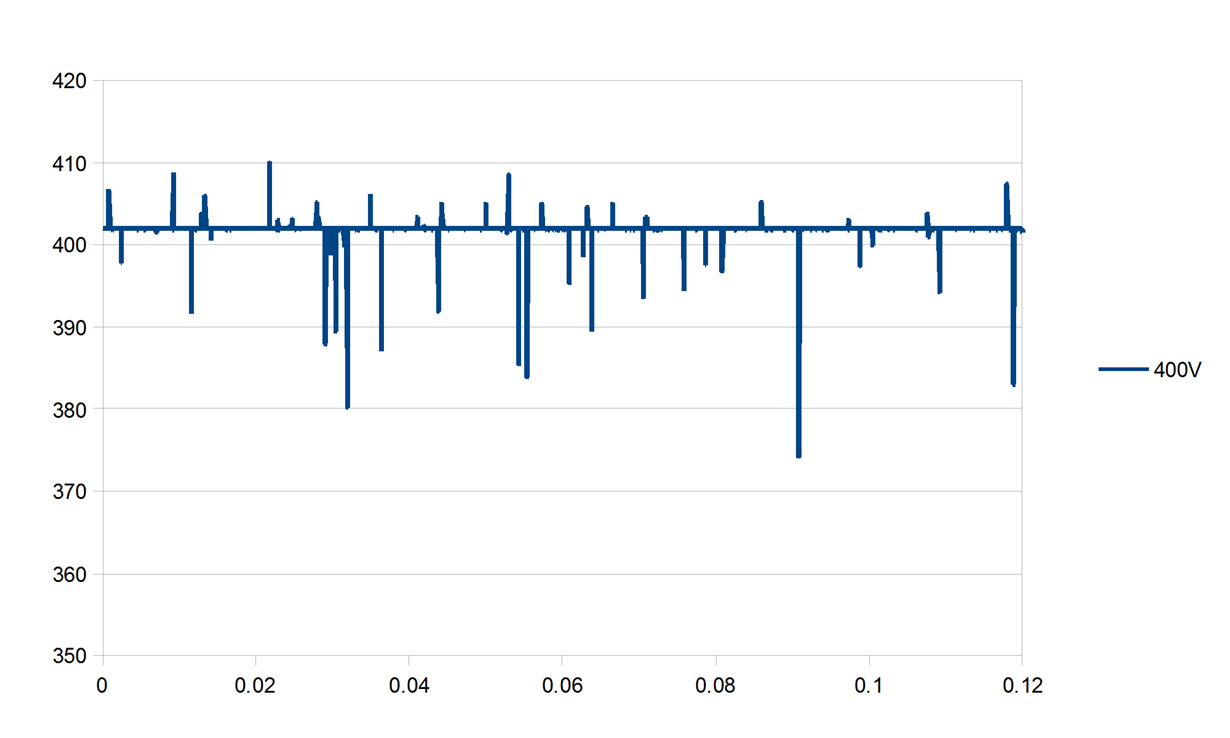Other Parts Discussed in Thread: TMS320F28379S, AMC1303M2520, AMC1306M05, AMC1306E05, TMS320F28377D
Hello,
I have the same problem as MarkoAnte and Fearghal Kineavy (see these four topics: https://e2e.ti.com/support/data-converters/f/73/p/791462/2927525 , https://e2e.ti.com/support/microcontrollers/c2000/f/171/t/791077 , https://e2e.ti.com/support/data-converters/f/73/t/717467 , https://e2e.ti.com/support/microcontrollers/c2000/f/171/t/716608 )
I use six AMC1303E2520 with a TMS320F28379S to measure isolated voltages. Some of them work well and others give me random false measurements. I checked the supply voltages and the transmitted data (everything is clean), try to change the chips, the MCU and so on.
The only thing that evolves is the density and amplitude of the spikes in my measurements with each replacement AMC1303, until one of them agrees to work correctly. The erroneous results compared to legit ones vary from about one over 200 to about one over ten, depending on the chip. The amplitude of the spikes varies from about one to ten percent of full scale. On a single board, I have unsoldered-resoldered like fifteen chips to have a working system. This is a pretty expensive way to work.
The measured input voltages are always kept in the +/- 250mV range. The power supply is 5V on HV side, 3.3V on LV side, both clean and stable. There is a 100R resistor on each Manchester line just at the AMC1303 output. I used the same schematic as Figure 55 in the AMC1303 datasheet, including the R3’ resistor. I use Sync3 filter and 256 oversampling. SYSCLK runs at 200MHz.
Finally, thanks to MarkoAnte and Fearghal Kineavy, I replaced one of the particularly stubborn AMC1303E2520 with an AMC1303M2520, connecting the clock as best as possible with a wire. I only changed the SDFM mode and the GPIO for clock input, and it works perfectly. Unfortunately, I cannot do the same for all six of them, as the corresponding clock inputs on the TMS320 are already in use for other essential functions. With the remaining budget and time for the project, I cannot afford to redesign a new board using AMC1303M.
Is there anything I can do other than playing AMC1303 roulette? I am currently testing a second board identical to the first one, and the problem is exactly the same.
Thank you, best regards
Marc-André





